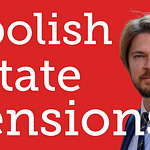In this Institute of Economic Affairs podcast, IEA Director of Communications Callum Price interviews David Seymour, New Zealand's Deputy Prime Minister, Minister for Regulation and leader of the ACT Party. The conversation covers New Zealand's productivity challenges and Seymour's landmark Regulatory Standards Bill, which would establish statutory principles for good regulation based on protecting liberty and property rights. They discuss how New Zealand is tackling government bloat through fiscal restraint, cutting spending growth to just 0.9% while facing significant demographic pressures from an aging population.
Seymour explains his approach to welfare reform, arguing that one in six working-age New Zealanders being on benefits is unsustainable, and outlines plans to raise the pension age incrementally. The discussion explores how his government has successfully introduced charter schools outside union control, allowing innovative employment models and tripling staff-to-teacher ratios in some cases. He criticises the education system's prioritisation of union interests over children's outcomes and describes the rapid implementation of seven new charter schools within 15 months of taking office.
The interview concludes with Seymour's analysis of New Zealand's planning reform, replacing sustainability-based resource management law with property rights-focused legislation. He argues that current planning systems have become so restrictive they're "destroying who we are as a country," citing how the climbing walls where Sir Edmund Hillary supposedly learned to climb have been closed for health and safety reasons. Seymour advocates for a system where property owners can develop freely unless they materially impact others' property rights, moving away from subjective sustainability assessments that cost billions and create massive uncertainty.













